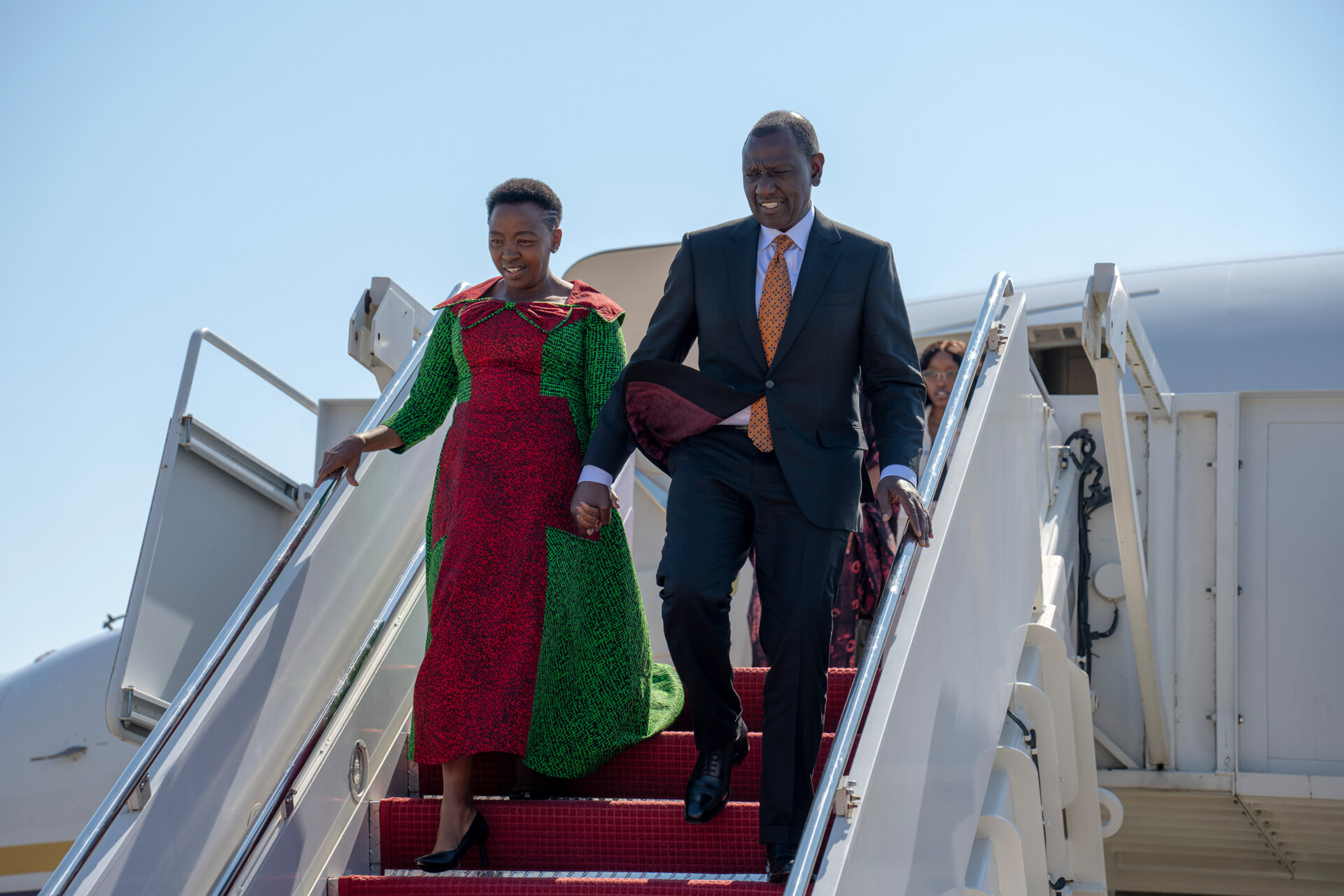- Yesterday, US President Joe Biden and Kenyan President William Ruto announced new initiatives in the bilateral relationship, many of which promote climate action and international finance reform.
- Separately, the White House announced its intent to designate Kenya as a “major non-NATO ally.”
Story
Yesterday, US President Joe Biden welcomed Kenya’s President William Ruto to the White House, the first official state visit by an African Head of State to Washington since 2008. Together, the two released a fact sheet with initiatives across a range of topics from democracy to trade, including an array of projects under “Shared Climate Solutions”.
The flagship climate component, the US-Kenya Climate and Clean Energy Industrial Partnership seeks to: 1) spur clean energy deployment, 2) establish and enhance clean energy supply chains, and 3) support green industrialization writ large as the first step in a wider green growth collaboration with nations in Africa. Greater climate collaboration can create jobs in Kenya and America, increase supply chain resiliency and ensure energy security while helping the planet. The White House also named specific climate projects in Kenya, including investments in hydropower and EV startups, promoting private and public clean energy adoption and increasing conservation. Utilizing USAID, the Development Finance Corporation, and a $60 million grant from the Millenium Challenge Corporation, the Biden Administration has put real weight behind the partnership with Kenya, culminating in a MOU on government-to-government climate cooperation to be signed in Nairobi this June.
The US and Kenya also announced a joint vision on debt, development, and sustainable finance. The ‘Nairobi-Washington Vision’ is a call to action to the international community to support often highly indebted countries that aim for greater investments in their own development and global challenges.
The US highlighted their own efforts to expand support to developing countries through International Financial Institutions (IFIs). This includes working with Kenya and other shareholders to evolve the world’s multilateral development banks to secure reforms to unlock over $250bn in new lending at these institutions. Over the coming weeks, the US also intends to make available lending of up to $21bn to the IMF’s Poverty Reduction and Growth Trust. Separately, it has made available this week $250 million through the World Bank’s IDA Crisis Response Window. Lastly, the fact sheet emphasized President Biden’s FY2025 budget request that would enable $36 billion in new lending at the World Bank.
The collaboration between the US and Kenya is especially welcome within the IFI, development, and climate communities. It is more important than ever that the US, as a global leader and largest shareholder at many of the world’s multilateral development banks, works with leaders from Africa and other developing regions to ensure that reforms to the IFI architecture are delivered with scale and impact. The US’ new funding contributions to the IMF and IDA are necessary and we hope to see further contributions from the US and other shareholders.
This partnership also comes as the US seeks to counter China’s influence in the region. The US-Kenya climate announcements have real investments and support behind them. They exemplify how the US can and should interact with emerging economies, rooted in climate action and demonstrating proactive rather than reactive partnerships. Finally, the White House’s intent to designate Kenya a “Major Non-NATO Ally” (the first in Sub-Saharan Africa) shows that the climate partnership helps shape the wider US relationship with Kenya and other emerging economies.
Quotes
Travis Brubaker, Senior Policy Advisor at E3G said:
“The US can leverage action on climate to build new partnerships – in Kenya, across Africa and in other emerging economies.”
Erin Landy, Policy Advisor, E3G:
“The ‘Nairobi-Washington Vision’ and US contributions to the IFIs demonstrates the leadership that is necessary to drive forward the reforms of the IFIs and fund the energy transition.”
– ENDS –
Available for comment
Travis Brubaker, Senior Policy Advisor, US Climate Foreign Policy
m: +1(202)-870-4350 e: travis.brubaker@e3g.org
Erin Landy, Policy Advisor, Public Banks and Development Climate Policy
m: +1 (518) 225-6850 e: erin.landy@e3g.org
Notes to Editors
- E3G is an independent climate change think tank with a global outlook. We work on the frontier of the climate landscape, tackling the barriers and advancing the solutions to a safe climate. Our goal is to translate climate politics, economics and policies into action. About – E3G
- For further enquiries email press@e3g.org or phone +44 (0)7783 787 863
- Register for our journalist WhatsApp briefing service to receive updates and analysis for key geopolitical and climate events over 2024 and 2025 on the road to COP29 and COP30: E3G WhatsApp registration for journalists – E3G.



